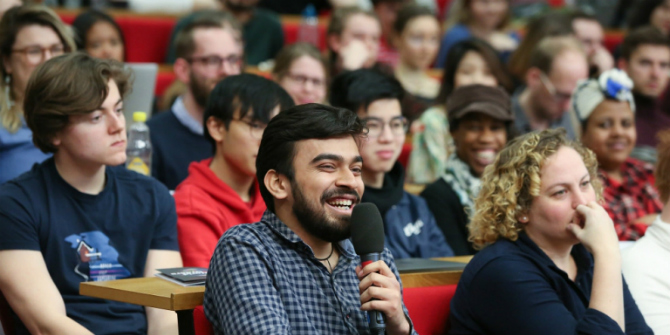What will the year 2020 be like for higher education in the UK? Anne Corbett and Claire Gordon (LSE) predict more fragmentation and division.

The higher education sector had been expecting 2020 to be a sad, if not bad, year. When the transition period ends, the UK’s 136 universities will lose their automatic access to EU research programmes, the much-appreciated European Research Council and the Marie Skłodowska-Curie fellowship funding, as well as the multiple exchange and mobility opportunities that Erasmus+ has brought the sector. The everyday character of UK universities will change with the end of freedom of movement.
Many excellent EU academics have already gone, leaving behind the hostile atmosphere post-Referendum in the UK. As yet we do not know the statistics for individual English universities nor the average rate of turnover, but Freedom of Information requests in Scotland reveal that Edinburgh alone has lost 1272 staff. Many other academics from the EU27 are reluctant to take up UK positions.
Now, with Boris Johnson’s assumption of the premiership, 2020 takes on a darker hue. His overall aim is for a strongly competitive relationship with the EU, based on divergence from Union norms and standards. That means a hard Brexit, or even no-deal.
It is the case that rather than wait for the outcome of leaving the EU, some universities have been developing their own “Beyond Brexit” strategies, including looking beyond the borders of Europe, as well as, establishing direct bilateral arrangements with universities in Europe. In general, there has been a move to increase commercial transnational education. Most higher education institutions have signed up to the internationalisation Stand Out Campaign of Universities UK which pledges to double the percentage of UK-domiciled students who study, work or volunteer abroad during their degrees. In the short term, however, these new initiatives will hardly compensate the huge returns reaped from decades of European cooperation.
But as long as the UK/EU relationship remains uncompleted, meaning a December no-deal cliff edge is still on the table, universities are obliged to continue their efforts to minimize no-deal consequences. This means supporting EU staff, managing the funding which keeps universities sustainable and coping with the unexpected political fallout. This is both non-productive and highly demoralizing. As for continued access to EU programmes under third country terms, it is a non-starter as long as the new bilateral UK/EU relationship is being thrashed out.
The new priorities of the Johnson government will also come at a noticeable cost for higher education and research in general. Driven by Johnson’s chief adviser, Dominic Cummings, universities will be increasingly pressed to deliver research which feeds directly into industrial innovation. More research funding is in store, with an agency to mastermind what the Conservative manifesto called ’high risk, high pay-off research’. It will be modelled on the big-budget American defence-led DARPA. This amounts to a very different philosophy from that which underpins European Research Council funding and comes without the built-in links of transnational cooperation.
It is the unpredicted combination of Brexit and the Johnson accession to power which will make 2020 a turning point. In a sector already beset by funding pressures and new regulatory demands, it will put on a new plane the already observable trend to fragmentation between research-intensive and teaching-intensive universities. At the same time, STEM subjects will be increasingly favoured; humanities and social sciences (somewhat protected by the EU) increasingly downgraded. This may deliver for the STEM-strong universities many of which fall into ‘the world-leading’ category. But it will come at the cost of what still unites the sector epistemically.
This post represents the views of the author and not those of the Brexit blog, nor the LSE. Image by LSE blogs.







Thank you for this warning article.
The awful noise of Brexit chickens coming home to roost begins.
The value added of UK higher education could be significantly undermined.
Many of the important links with the EU academic world are already under threat, but what remains can be saved if Boris Johnson’s government argues for the retention of these vital links. That pledge needs to come NOW. Hopefully the exodus of valuable academics from our universities can then be reversed.